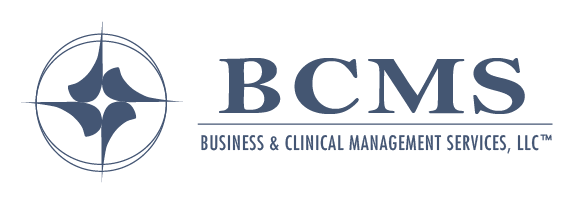Compliance for Outpatient Therapy Providers … the requirement that private practitioners often put in the back of the closet. When regulators come to your door, do you want to be naked…i.e., without a Compliance Program in place, or do you want to be ‘dressed to the nines’?
Why You Need a Compliance Program for Your Outpatient Practice
What does this mean for your practice and why should you care? In a broad sense the ‘what’ means that there are requirements you need to ensure both your practice and your staff are aware of, have documented, and follow daily. The ‘caring’ part is because compliance is required by law and can carry both civil and/or criminal penalties for the lack of it. This is not meant to scare you, but, rather, to inform you so that you can be proactive in your compliance endeavors. If you would like to learn more about what is required for outpatient providers, click here.
HIPAA, The Privacy and Security Rules
One of the most well-known compliance regulations is HIPAA, which has been around for twenty-five years. HIPAA/HITECH requires, among other mandates, that we securely manage our patients protected health information (PHI) both in paper and electronic formats. We are also obligated to thoroughly educate our workforce on HIPAA’s Privacy and Security Rules and to provide business associate agreements to those who use or access PHI/ePHI for us or on our behalf. Approximately two thirds of HIPAA requirements involve developing and maintaining written policies and procedures. Do you meet all or any of the above? Do your staff members know what their PHI use and access permission level is? Do they know when an authorization to use or disclose PHI is not needed? Do they know what the 18 PHI identifiers are? https://www.hhs.gov/hipaa/for-professionals/privacy/special-topics/de-identification/index.html#protected If you cannot answer yes to these few questions you may need to create or update your existing HIPAA policies and procedures. Knowledge is power, take the next step to empower your staff and comply with the law.
Department of Labor, OSHA and ADA
There are other laws and requirements that also apply to your practice. Many regulations and their enforcement fall under the Department of Labor, The Fair Labor Standards Act, Fair Credit Reporting Act, Civil Rights Act, and Age Discrimination Employment Act. These regulations govern how you employ, pay, provide benefits for, and even background check or drug test your staff. One of the most confusing issues is the classification of staff as exempt or non-exempt. Failure to properly classify an employee could lead to fines, payment of back pay and/or an EEOC compliant. If you need a quick review click here.
The Occupational Safety and Health Administration (OSHA) regulates how you ensure your staff is safe at work. Their requirements include mandatory education, exposure and hazard assessments, exposure control barriers (think avoiding COVID-19 here!), and physical plant requirements such as, spill kits, PPE, sharps containers, and eye wash stations, etc.).
The American with Disabilities Act (ADA) and Section 1557 of the ACA have requirements that impact both employees and patients of your practice from employment, facility and language accessibility standpoints.
Policies & Procedures are a Must
Sadly, the list continues if you participate in Medicare, Medicaid, or any private payer for reimbursement. Compliance with all laws, rules, and standards, and policies is mandatory. The first critical step for safeguarding your practice is learning what is required of you as a healthcare provider.
According to the APTA:
The policy and procedure manual plays an important role in every business and organization, and physical therapy is no exception. The development and enforcement of policies and procedures is an important responsibility of physical therapist (PT) managers.
A well-written and comprehensive manual communicates to both internal and external stakeholders the rules, regulations, and processes that govern an entity. Policy and procedure manuals are integral to the orientation and training of new and current staff; ensuring compliance with laws, regulations, and accrediting organizations; and promoting consistency, safety, and best practices.
A poorly developed manual, conversely, fosters confusion and inconsistency, increasing the risk that laws, regulations, and health and safety standards will be violated. Even worse, an inadequate manual can heighten the risk of injury or harm to patients and employees and place the organization at risk for lawsuits and other damages. Taking the time to carefully and accurately develop and maintain policies and procedures, therefore, is an important investment for all managers. http://www.apta.org/PolicyandProcedureManuals/
Once you have a Compliance Program in place, educate your staff and be certain to document that education. You must monitor and audit your workforce’s adherence to your Program and provide updates and additional education to ensure all compliance requirements are met. When management embraces its professional, ethical, and fiduciary obligation to have a compliant practice, the stage will be set for a compliant working environment and culture throughout the company. Do not get caught naked in 2021! Start the New Year off fully clothed with a comprehensive and thoroughly vetted Compliance Program!
Business & Clinical Management Services (BCMS) is an outpatient therapy consulting company that provides the keys to unlocking the compliance regulatory vault. For a turnkey solution for a Compliance Program, click here or contact Alicia N. Mahoney to schedule time for a free compliance program overview.
